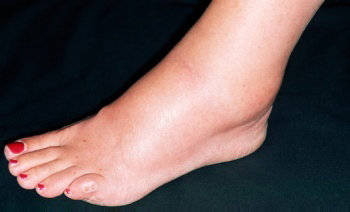Are you going to Facebook instead of the doctor?


I found myself wondering how the heck a person would even do that, so I logged onto Facebook in an attempt to investigate. Believe or not, the first thing I saw was a camera phone picture that a friend of a friend had uploaded, showing her badly swollen ankle.
She had snapped a picture with her cell phone, uploaded it, and 19 of her closest friends had commented on how bad it looked, offering opinions of what to do about it. The usefulness of the comments varied, ranging from the "Oh, poor baby!" variety, to things like, "Get an X-ray now," and "Eeew, gross!"
I left the computer momentarily. By the time I came back, less than five minutes later, there were two more comments. As of this writing, it's up to 36 comments. She's apparently decided to ice and elevate the injury, avoid the emergency room on a weekend, and see a doctor tomorrow.
Oddly enough, I don't personally know the woman with the swollen ankle. But because one of her friends, who is also one of my friends, had commented on her injury, I was able to see a detailed picture of it.
Should we use social media for health care information?
There are a ton of issues here.
I guess it's great if your friends are knowledgeable. But a whole bunch of advice from well-meaning friends who know nothing about the healing arts might not be very helpful.
Bad advice could actually cause someone to avoid seeking much-needed medical attention. After all, some of the signs and symptoms of serious conditions are innocuous and counter-intuitive.
Then again, in the richness of our human experience, we pick up a lot of information we can pass on. We might be able to steer friends toward treatment they might really need, but wouldn't otherwise seek.
For example, 25 Facebook friends piling on the guy who is refusing to seek treatment for feelings of pressure in his chest might provide enough social pressure to get him to dial 9-1-1.
I also wonder whether active practitioners of the healing arts might be choosing to stay out of these sorts of Facebook conversations. They might think it wise to avoid liability issues and other questions associated with giving snap-judgment medical advice based on bad cell phone pictures.
Apparently, as reported by fellow ZDNet blogger Emil Protalinski, that wasn't the case with the British surgeon who stepped up to the plate and diagnosed the appendicitis of an old friend from afar, probably saving his life.
See also: Surgeon gives life-saving diagnosis, via Facebook
As a nurse, I am pondering the possibilities of how the medical community could reach people, teach people, help people, and encourage people through Facebook and other forms of social media.
Of course, there is a huge difference between educating and diagnosing. Concerns about practicing across state lines, and other potential pitfalls, are important to explore and properly address.
The fact that people may not like to be sold to or preached to on their social networks by businesses should be taken into account, even if these businesses are corporate health care firms.
Yet, I think there is real potential in using the mediums people love to get important health information out to the general populace.
What do you think of using social media for health information? Do you do so already? How are you using it? Please share in the TalkBacks below.